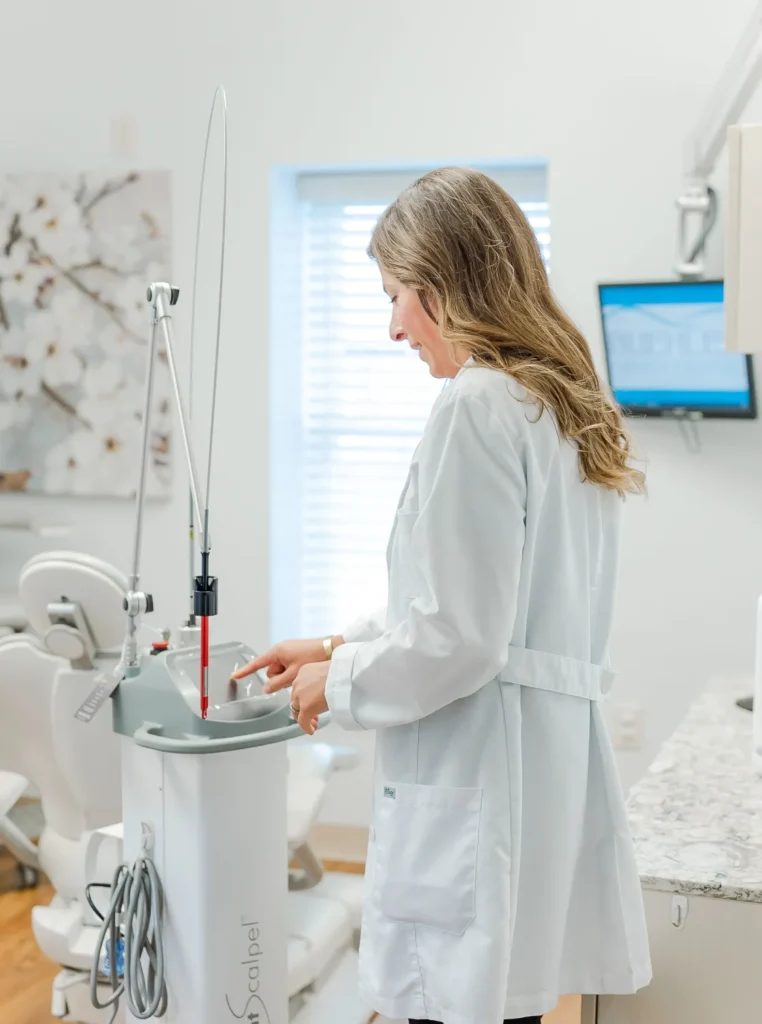Central to Dr. Buehler’s treatment plan is myofunctional therapy, strategically implemented both before and after any procedure. This preparatory and rehabilitative practice is pivotal in optimizing the functional outcomes of treatments, enhancing muscle function, and promoting proper oral habits. By conditioning the oral environment for success, myofunctional therapy significantly increases the efficacy of subsequent interventions.
Utilizing state-of-the-art laser technology for tongue and lip releases, Dr. Buehler ensures that each procedure is minimally invasive, reducing discomfort and speeding recovery times. Her approach is characterized by precision and gentleness, reflecting a commitment to patient comfort and safety while achieving profound therapeutic results. The procedure is known as a “frenectomy” or “frenuloplasty” and involves the removal of the tightly bound fascia and restricted tissues. These treatments take place in the dental office and usually only require local anesthetic. Most of the time Dr. Buehler will place resorbable sutures in the area to aid in proper healing.
Patients frequently express experiencing immediate relief following Dr. Buehler’s interventions, a testament to the effectiveness of her targeted treatment strategies. Beyond the immediate improvements, the holistic and comprehensive nature of her approach aims for enduring benefits, addressing the root causes of RTOTs to facilitate long-term health and functional improvements.









